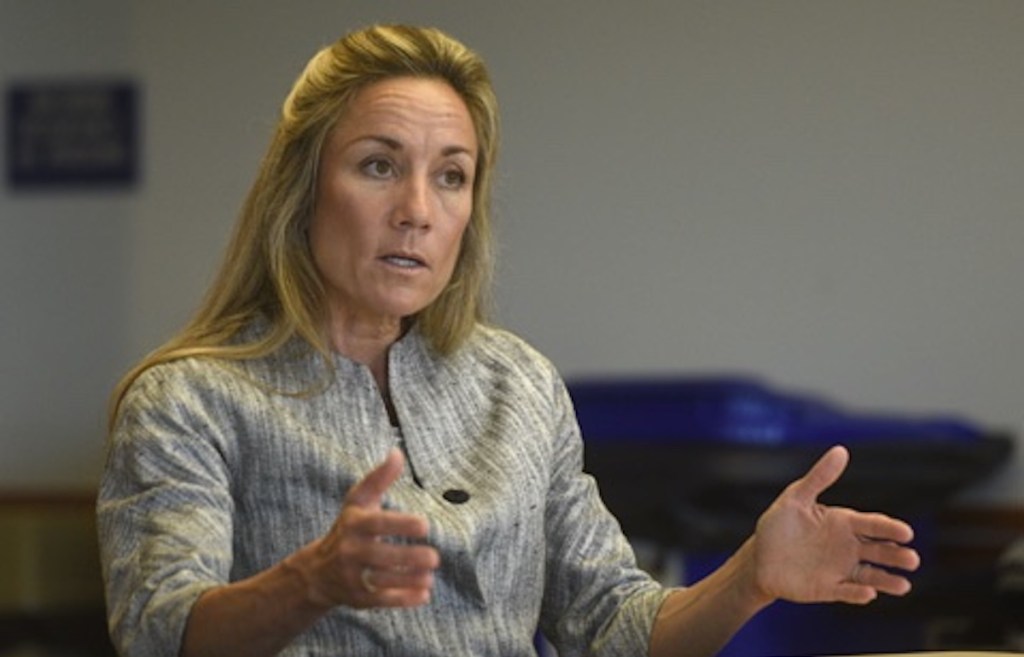Santa Barbara County administrators announced late Tuesday, October 11, that they’d agreed to settle a complaint filed by the Department of Justice amounting to $28 million. The Department of Justice claimed $21 million worth of bills had been improperly filed and collected by the Santa Barbara Department of Behavioral Wellness on behalf of low-income patients seeking treatment for mental health problems. According to the settlement, the county will pay the Department of Justice $21.4 million for billing errors that took place over 10 years, from 2008 to 2018. In addition, the county will pay the whistleblower, Judith Zissa, a former Behavioral Wellness employee, $3 million for being fired in a retaliatory manner and another $3.6 million to cover Zissa’s attorney’s fees.
In a press statement issued Tuesday afternoon, Behavioral Wellness spokesperson Suzanne Grimmesey stressed that the settlement resolves claims that are “allegations only” and that no “determination of liability” had been found. The settlement, Grimmesey stated, “means the county will avoid a potentially lengthy and expensive trial defending itself, and was approved by the Department of Justice as well as the Board of Supervisors.” Assistant County Executive Terri Maus-Nisich stated, “While the county does not concur with the tenor of the allegations made, it’s true that documentation requirements were not met in all instances.”
Court filing submitted by Zissa and the Department of Justice, however, paint a more damning picture, describing financially desperate department executives promoting a “revenue-first” culture, in which physicians were pushed hard and rewarded to bill aggressively. This was especially the case, the complaints allege, when billing Medi-Cal for treating low-income patients with mental illness issues.
These clients, the complaints allege, constitute about 90 percent of the 7,000 patients the department treats each year. Employees were rewarded for exceeding billing targets, the complaints alleged, and “punished if they refused to cooperate in the excessive billing practices or to turn a blind eye to questionable practices.” High-billing employees were reportedly rewarded with “Revenue Ranger” badges, which pictured as a piggy bank wearing a Superman cape.
According to the complaints, the department improperly billed government agencies for payment when they submitted bills for clients for whom there was no valid executed treatment plan. Such plans are to be updated annually and signed by the patient. According to the allegations against the county, “hundreds, if not thousands” of clients lacked such valid treatment plans. There is no allegation that the clients did not receive treatment, only that proper procedures were not followed.
Sign up for Indy Today to receive fresh news from Independent.com, in your inbox, every morning.
Zissa and others brought this issue to the attention of departmental higher-ups, the complaint stated, but were rebuffed for their efforts. At the time, the department was on financially shaky ground — always spending more than the supervisors budgeted, in fact — and the focus of such intense scrutiny that the supervisors were so focused on the conduct of Behavioral Wellness that they hired two outside auditing firms to conduct a soup-to-nuts examination of departmental practices in an effort to improve its performance and methods.
The complaint also alleges that the department regularly billed for mental health services provided to individuals locked up in county facilities, even though such claims are duplicative and not eligible.
The Behavioral Wellness Department works with many clients who are facing some of the most acute challenges with the fewest resources. The rules and regulations surrounding billing and payment are highly complex, and the department is understaffed. But this is not the first time it’s run into serious trouble over its billing practices. In 2007, the department notified the State of California it may have overbilled for services to the tune of $9 million. California begged to differ, insisting it had paid out $33 million more than it should have.
Reverberations from this most recent settlement will no doubt rumble through the department and county government in ways large and small, but departmental spokesperson Grimmesey stated that it will not impact the county’s general fund. Instead, the money will come from a litigation reserve account. “No Behavioral Wellness or other county operations will see a funding reduction related to this settlement,” stated Maus-Nisich.
Inheriting this mess is new Behavioral Wellness Director Toni Navarro, on the job now just 10 months. “We have a remarkably talented and dedicated clinical staff,” she wrote. “These individuals have a heart for helping those most in need.”
In a more recent interview, Maus-Nisich and Navarro stressed that the alleged violations involved issues of documentation, not to patient care and treatment. “People got treatment. People got served,” Maus-Nisich stressed. The documentation for the level of treatment, she said, may not have met the levels required by Medi-Cal, but the patients themselves were not shortchanged. She also acknowledged Behavioral Wellness was slow to respond to previous audits that called attention to the problem.
She and Navarro also stated that the documentation regulations that applied between 2010 and 2018 were sufficiently demanding that at times, they effectively slowed down access to treatment for some of the more underserved members of the community. Under a major change in how Medi-Cal payments are now processed, they both said, the new rules will be streamlined, making the reporting and documentation processes quicker and easier. Even so, Navarro added, that she’s looking to hire up to five additional administrative staff members to ensure her department does not run afoul of Medi-Cal payment documentation requirements.
Support the Santa Barbara Independent through a long-term or a single contribution.

